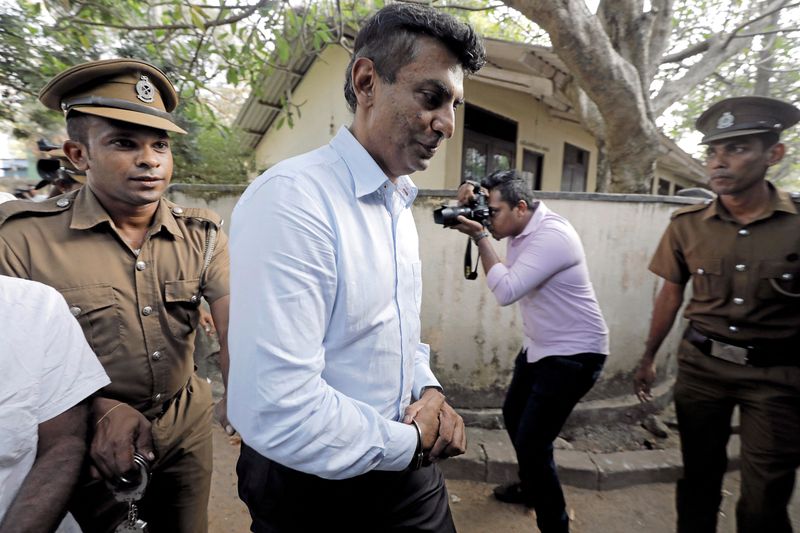WASHINGTON (Reuters) - The U.S. State Department announced a slew of sanctions on Monday to mark International Anti-Corruption Day and the eve of Human Rights Day, targeting individuals from multiple countries, including the former CEO of SriLankan Airlines over Airbus purchases.
Also targeted were North Macedonia's former deputy prime minister, Artan Grubi, as well as Enver Bexheti, a judge from that country's appeals court and Kevin Kedi, a councilman from the Marshall Islands, for allegedly accepting bribes.
The State Department said the United States was redesignating UK resident Fawaz Akhras, father of the British-born wife of the deposed Syrian president, Bashar al-Assad, for providing him with material support.
A State Department statement said Kapila Chandrasena, the former CEO of SriLankan Airlines, was designated for sanctions along with immediate family members, for allegedly accepting a bribe in exchange for ensuring Sri Lanka purchased Airbus aircraft for over market value.
Sri Lanka's former ambassador to Russia, Udayanga Weeratunga, meanwhile, was accused of benefiting from a corrupt scheme involving the procurement of MiG aircraft for the Sri Lankan Air Force. He and immediate family members were designated, the statement said.
In 2020, Sri Lanka ordered a probe into allegations of bribery by European planemaker Airbus over the sale of aircraft to state-run carrier SriLankan Airlines, after Airbus agreed to settle a corruption probe with regulators.
A senior official at SriLankan Airlines said at the time that a Colombo court had issued orders to arrest Chandrasena and his wife Priyanka Niyomali Wijenayake as suspects of money laundering.
The State Department also said that the United States, in close coordination with the United Kingdom (TADAWUL:4280), was also sanctioning nine individuals and 19 entities involved in a global gold and diamond corruption network based in Zimbabwe.

It said Abdul Qader al-Murtadha, head of the Houthi National Committee for Prisoners’ Affairs (HNCPA) and that organization were designated for involvement in torture, while visa restrictions were imposed on seven individuals accused of undermining peace and security in the West Bank.
None of the individuals named could immediately be reached for comment on the steps, which involve a range of sanctions including freezes of any U.S. assets and U.S. visa bans.